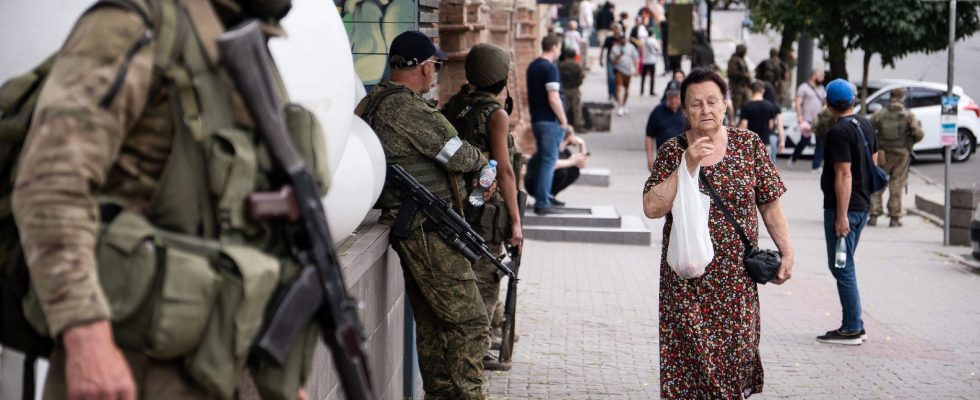Convoy, Patriot, Enot… Their names are still largely under the radar. Unlike Wagner, these structures do not make headlines and, above all, do not openly challenge Vladimir Putin. But these are, like Wagner, private military companies (PMCs) rooted in Russia. Their principle is just as simple as that of the paramilitary group led by Evgueni Prigojine: to form a group of fighters to serve various interests. “There are SMPs that predate Wagner,” Peer de Jong, vice-president of the Themiiis Institute and former colonel in the navy, told L’Express. “And there are a relatively large number of them in Russia.”
On paper, they resemble the society created by Prigozhin, who rose up against the Kremlin on June 23 before aborting his rebellion twenty-four hours later. They also recruit mercenaries, former soldiers, prisoners and even vagabonds to operate all over the world. Although it is difficult to identify them, we do know that their number has exploded in recent years. “Today, all structures have developed an SMP, confirms Peer de Jong. Provincial governors have theirs, Defense Minister Sergei Shoigu has his, as does the gas giant Gazprom…”
Various interests
Their role is simple: to defend the interests of their creators, especially internationally. “The Russian army cannot go and protect the positions of a company in the depths of Africa,” notes Peer de Jong. An SMP can. Thus, the Center for Strategic and International Studies estimates that at least 30 countries host suspected or proven PMC operations. Among them, Ukraine, but also Syria, Libya, Sudan and Venezuela. The PMCs fulfill a variety of missions there: combat, military training, intelligence, security of the leaders… In all illegality since they are, in theory, prohibited by the Russian Constitution.
But the PMCs enjoy tolerance from the Kremlin. When it was created in 2013, Wagner was even sponsored by state security entities, such as Russian Intelligence (FSB) or General Staff Intelligence (GRU). Wagner’s boss, Evgueni Prigojine, is also close to Vladimir Putin. “Putin is an admirer of the American model and that of Blackwater”, a private American army having operated in particular in Iraq, explains Peer de Jong. Since the PMCs escape Russian law, unlike the army, they can thus serve as “subcontractors”.
The Kremlin is now trying to regain control. The Ministry of Defense in June ordered all volunteer detachments to sign contracts with the state. It is this decision which would have served as a trigger for the rebellion led by Evgueni Prigojine, who does not hide his aversion for Sergei Choïgou and for the chief of staff Valeri Guerassimov. But apart from Wagner, “the other SMPs don’t have the influence or the capacity at all” to oppose this order, says Peer de Jong. “They remain structures of a few hundred men, who serve the interests of their creator.”
And therefore remain light years away from the powerful Wagner which, in addition to security, has greatly diversified its “business” and its operations – in particular influence in many countries. “Two models are emerging, that of the sovereign and the official with the army, and the dissident model of private companies, concludes Peer de Jong. “Putin was forced to make a choice. He just hadn’t expected Prigojine to resist so much. It’s kind of the creature that escapes its master.”
